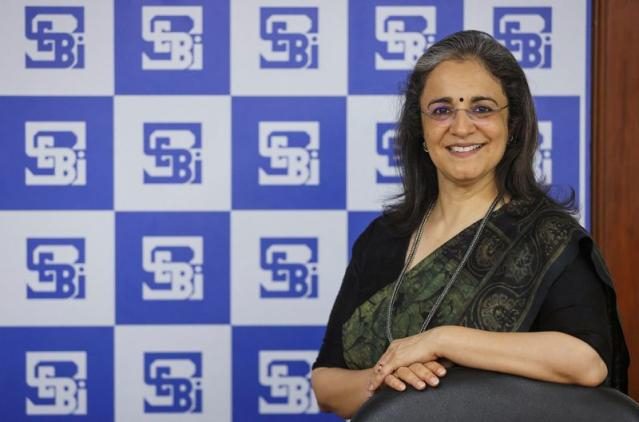Madhabi Puri Buch, Chairperson of the Securities and Exchange Board of India (SEBI), defended her adherence to all required disclosure guidelines in response to allegations made by India’s main opposition party and U.S.-based short-seller Hindenburg Research. Buch stated on Friday that she had fully complied with SEBI’s disclosure and recusal guidelines, emphasizing her proactive steps to maintain transparency.
In a personal statement, Buch said, “I have complied with all the disclosure and recusal guidelines of SEBI, and, in fact, maintained a proactive continuing recusal list with SEBI, going above and beyond the requirements under the guidelines.”
The controversy surrounds allegations of conflict of interest involving Buch’s previous association with ICICI Bank, her past investments, and her handling of regulatory investigations into the Adani Group.
Table of Contents
Allegations Against Buch
Buch has been at the center of accusations from U.S. financial research firm Hindenburg Research and India’s opposition Congress Party. The allegations revolve around potential conflicts of interest in SEBI’s ongoing investigations into the Adani Group, a major conglomerate led by billionaire Gautam Adani.
In an August report, Hindenburg Research claimed that Buch held previous investments in a fund that was part of a network allegedly used by Vinod Adani, Gautam Adani’s brother, for financial irregularities. Hindenburg argued that these ties compromised Buch’s objectivity in overseeing the Adani Group’s regulatory investigations. Buch denied these allegations in earlier statements.
The Congress Party further called for a probe into Buch’s conduct, demanding her resignation. They alleged that Buch’s involvement with ICICI Bank and other corporate entities, including Mahindra Group and Dr. Reddy’s, constituted a conflict of interest.
ICICI Bank Connection
One of the primary allegations focuses on Buch’s previous employment at ICICI Bank, where she worked until 2011. The Congress Party claimed Buch continued to earn income through employee stock options (ESOPs) from ICICI Bank while the bank was under SEBI’s scrutiny for market infractions. However, in her defense, Buch stated that SEBI guidelines allow board members, including the Chairperson, to hold and trade in ESOPs.
Buch further clarified that she had recused herself from all regulatory matters concerning ICICI Bank since assuming her role at SEBI. The bank also issued a statement denying any conflict of interest regarding Buch’s tenure and income.
Consulting Fees and Corporate Links
The Congress Party also alleged conflicts of interest due to consulting fees paid to Buch’s husband, Dhaval Buch, by Mahindra Group and Dr. Reddy’s. Madhabi Buch addressed these concerns, stating that she had already recused herself from regulatory matters concerning these companies.
The consulting fees in question were earned through two entities—Agora Partners and Agora Advisory—where Madhabi Buch holds a 99% shareholding. These advisories continued to receive revenue after Buch took up her post as SEBI’s second-highest official in 2017. Buch explained that these arrangements were made to “transparently isolate” her income from Dhaval Buch’s personal earnings and expenses.
She also accused her critics of using her tax returns to manufacture baseless allegations, stating that these returns were obtained through fraudulent and illegal means.
Ongoing Controversy
Despite Buch’s strong defense, the Congress Party has maintained pressure, seeking further investigation into her conduct and calling for her resignation. The party has yet to formally respond to Buch’s latest statement, though it is expected to address her remarks soon.
Meanwhile, SEBI continues its investigation into the Adani Group. The federal government has not yet commented on whether it plans to launch an investigation into Buch’s conduct. An inquiry sent to India’s Finance Ministry by Reuters remains unanswered.
This controversy marks a rare instance in which the head of a major Indian regulatory body faces significant pressure to step down over alleged conflicts of interest.




